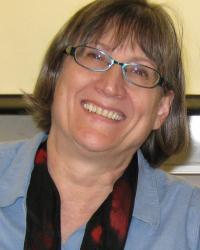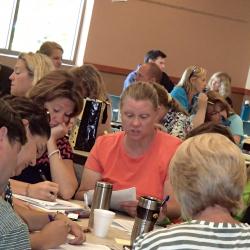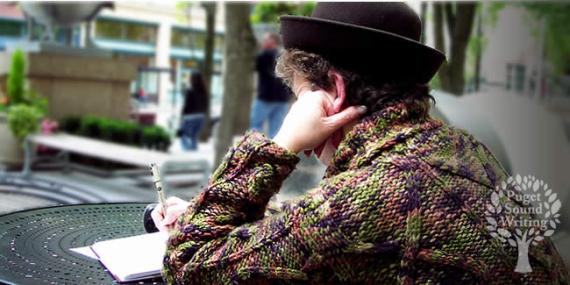For nearly 35 years, the University of Washington and English Department played an integral role in the success of the Puget Sound Writing Project (PSWP), inspiring effective writing teachers and student writers from Vancouver to Bellingham. PSWP’s writing consultants led writing institutes for K-12 faculty in Seattle, Tacoma, Burlington, South Whidbey Island, Peninsular, North Shore, and other districts. They consulted in local schools and provided endless opportunities for coaching and professional development. They studied proven pedagogy and provided forums for faculty at all levels to share successes and advice across myriad academic disciplines. It is doubtless that the efforts of PSWP staff made generations of better writers in Washington State.

What is the Puget Sound Writing Consortium and what's your role in it?
The Writing Consortium has the same philosophy now that the Writing Project had for 35 years: Teachers who write make the best teachers of writing; teachers are the best teachers of teachers and quality professional development occurs over time. This mirrors the philosophy of the National Writing Project which also offered PSWP grant support for decades.
I first fell in love with the Project in 2000 when I attended a month-long Invitational Institute on the UW campus. I was an English teacher at Franklin High School at the time, and my Department Head, Patty Lavelle, told me the Institute was like summer camp for writing teachers. I soon learned that while it held the joy of a summer camp, it offered the depth of pedagogy. Holly Stein and Dr. Jack Brenner were my instructors. Each day, 20 other K-12 teachers and I wrote for 45 minutes, shared strategies that had worked for us, participated in demonstrations by PSWP fellows, and delved into research about the teaching of writing. At the end of the summer, I became a Teaching Consultant and, in turn, shared ideas and strategies at conferences and in classrooms to other teachers. In 2005, the PSWP directorship became available, and I was hired. For ten years, I administered the Project as well as organized workshops and teaching institutes. I was fortunate to partner with three great UW professors – John Webster, Matthew Luskey, and Bob McNamara. When I retired in 2014, Holly Stein became the director. When the UW chose to close PSWP due to budget constraints, both Holly and I believed we should continue to make this wonderful professional development resource available, so we began the new non-profit agency – the Puget Sound Writing Consortium.
Did PSW Consortium's pedagogical practices to some degree grow out your experience with PSWP?
The pedagogical practices of the two organizations are identical. The Consortium has a cadre of about 20 K-12 PSWP-trained Teacher Consultants. As we did for decades, we work with school districts and offer professional development that supports their missions. We invite the appropriate consultants to share strategies with other teachers. During a workshop day, we typically share a strategy appropriate for all teachers in the morning and then offer break-down sessions in the afternoons for specific grade levels. And of course, each teacher workshop day includes a significant period of time to write. We include current research and develop specialized district websites that include all the strategies presented in a workshop.
How do you see the effects of what you are doing at PSW Consortium influencing education and improving student writing in our local communities?

What’s your vision for the future of improving teacher training and writing around the Puget Sound?
Our vision is to remain a resource available to schools and districts in Washington. We offer not only a range of strategies but also the opportunity to spend time discussing writing with colleagues and reflecting on their practice. Because lasting impacts of our professional development are only possible with a commitment of time from a contracting district, K-12 teachers get to work with teachers they may have only passed in a hallway.
Janine Brodine can be reached at jsbrodine@gmail.com
